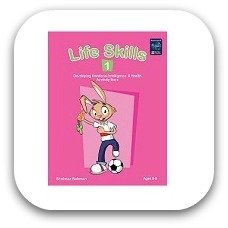Is My Child Smart?
By Shahnaz Bahman
At one time or another most parents ask “Is my child smart?” or “How smart is my child?” But a better question to ask is “How is my child smart?” The good news is all children are smart. They just have different kinds of smarts.

To some of us, the word ‘smart’ might mean having a high IQ or achieving good grades at school. But if this is true, then what about the artists, musicians, naturalists, designers, athletes, entrepreneurs, and others who enrich the world in which we live?
Dr. Howard Gardner, professor of education at Harvard University suggests that the traditional understanding of intelligence, based on I.Q. testing, is very limited. Instead, he introduces eight different intelligences to account for a broader view of human development. These are:
linguistic, logical, spatial, bodily, musical, interpersonal,intrapersonal and
naturalist.
Being aware of children's multiple intelligences helps us to see a clear pathway for whole child development. To raise a child with a well rounded balanced personality, we need to aim at developing all or most of
the intelligences. Also, when we know our children's strong intelligences, we look at them more holistically; we can see that they have some strong areas even if their academic results are not always top end. We will not get distressed or paranoid about their grades, or lose hope that they will be successful one day. We will be able to see the bigger picture and hope that they will excel in other areas. The world needs not only the academic
geniuses — it takes all other professionals to make it a more vibrant place for us all.
Another advantage of being aware of our children's intelligences is that we can help them strengthen their weaker intelligences through their strong intelligence. If your children love sports and are fond of famous footballers and their reading is weak, you can help them improve by reading a story about their favourite footballer or about football in general. It will be more engaging for them than something the cannot relate to. Children are as beautifully different as the colours of the rainbow. They are all unique with their different kinds of smarts.
If we understand their differences and love and accept them for who they are they can all shine and blossom in different ways. Remember it’s how different your children are that make them unique. It is not how smart he is, but how he is smart.
Number Smart

- Give toys for them to build
- When shopping involve them in buying, weighing and counting
- Encourage experimentation with safe materials
- Play matching games and ones that involve logic and numbers like such as UNO, Monopoly and chess
- Remain calm when they break their toys into smaller parts and try to put them together again.
Word Smart
- Provide lots of books and reading materials and look at stories together
- Listen intently to your child's questions, concerns and every day
experiences. - Visit the public library and local bookstores together.
- Play word games such as scrabble and complete crosswords.
- Encourage the writing of stories and publish them if possible.
- Get them enrolled in learning other languages.
Nature Smart

- Encourage the exploration of nature
- Allow working outdoors
- Provide the opportunity to look after pets
- Encourage involvement in environmental projects
- Set aside time to watch documentaries about nature together
People Smart
- Listen to your children when they speak
- Try not to be judgmental and respect your child's point of view
- Encourage being part of family conversation
- Enable thinking positively about their friends
- Play family games
- Encourage participation in group activities
- Provide opportunities where they can have lots of interactions with other children
- Enroll them in groups such as Boy Scouts or Girl Scouts.
Body Smart

- Involve your children in different sports activities or acting
- Encourage creativity using various arts and crafts
- As a family go walking, jogging, bowling, biking or play basket ball,
football or tennis. - Play physical action games such as charades
- Act out stories using only movement only
Self Smart
- Give children their space
- Allow time to work or play alone
- Encourage time to think before making choices whenever possible
- Enable them to be quiet and reflective.
- If they are hesitant or shy, don't force the issue.
- Encourage expression of feelings and points of view.
- Motivate them to keep a diary or a journal to record their thoughts,
feelings or decisions. - Encourage putting themselves in other people's shoes.
- Enable them to help others when opportunities arise.
- Give the opportunity to be giving and make others happy.
Sound Smart

- Play music around the house
- Involve your child in singing along or clapping to the rhythm of music
- Encourage them to listen to the different sounds of nature such as birds singing, the movement of the waves and rain drops.
- Encourage them to take part in music lessons.
Picture Smart
- Give your children materials to draw and paint
- Give them puzzles with fewer pieces and as your children get older
introduce puzzles with more pieces - Start graphic arts for older ones
- Try mazes
- Let your child use a camera to take pictures
- Play games such as Pictionary
- When you go to the beach have fun together building castles and mazes
|
|



